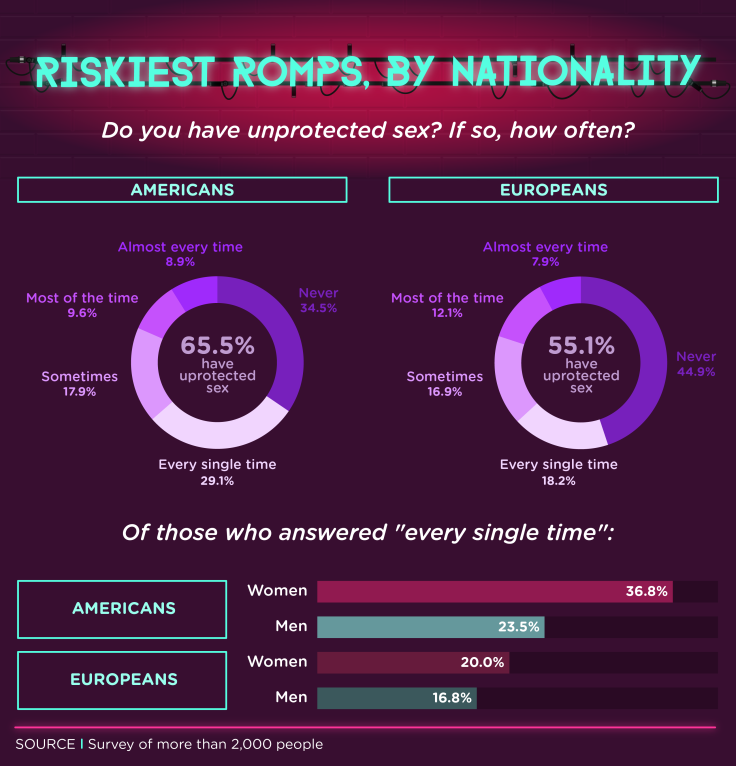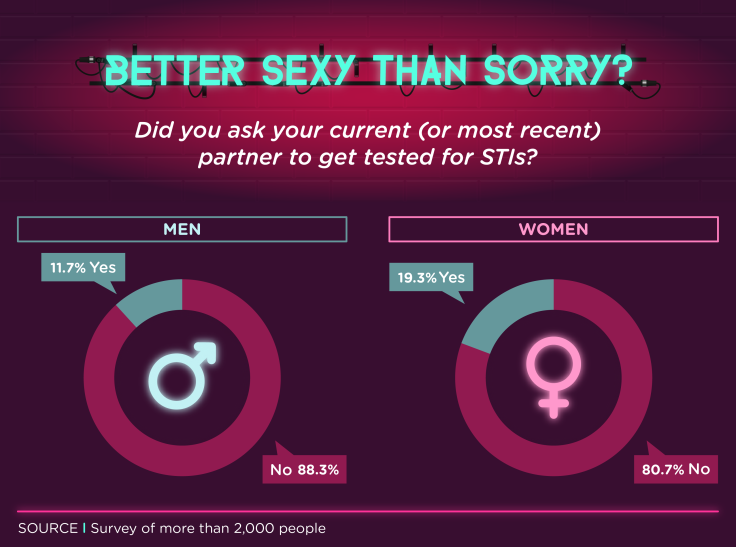How Often Do Americans Practice Safe Sex? Many Forego Protection, Don't Get STI Check-Ups: Survey

April is sexually transmitted infections (STI) awareness month, a time we set aside to acknowledge the prevalence of STIs, and look at our progress in preventing them. One of the best ways to prevent the spread of STIs is to practice safe sex, but a recent study from Superdrug pharmacy in the UK found that a large number of Americans and Europeans forget about safety during their intimate encounters.

Risky Romps - An infographic by the team at Superdrug
The study, conducted by Superdrug Online Doctor, found that the majority of Americans and Europeans practice safe sex, but many others still aren't using precautions, putting both their own and their partner’s health at risk. For example, the research, based on an online survey of 2,000 individuals, found that 8.9 percent of Americans surveyed and 7.9 percent of Europeans practiced unprotected sex “almost every time” they had intercourse. However, according to the figure, overall, Americans tend to have unprotected sex a full 10 percent more often than Europeans. Superdrug researchers suggested that this may have something to do with the prevalence of circumcision in America, and the belief that it cuts down on STD risks.
In addition to using protection, such as a condom when having sex with a new partner, it is also important to ask potential partners to get sexually tested before you have sex for the first time. However, as revealed by the Superdrug report, this is very uncommon on both sides of the Atlantic. More than half of respondents (68.4 percent) said they never ask potential sexual partners to get tested beforehand. Only 16. 8 percent of sexually active individual surveyed asked their partners to “sometimes” get STI tested, and only 3.3 percent requested partners get checked every single time before sexual activity.
Sexual testing is an important part of a sexual relationship, and should even be done in “monogamous” relationships. For example, a 2015 study found that individuals in monogamous relationships were just as likely to get STDs as those in open relationships. The reason: people lie. In addition, people in monogamous relationships report using condoms less and getting fewer STD check-ups than those in open relationships, further increasing their risk for contracting an STI.

Risky Romps - An infographic by the team at Superdrug
“Persons who have made monogamy agreements often break them, and when they do, they are less likely to take safety precautions, get tested for STDs … Thus, many people in monogamous relationships may not be as safe as they assume,” lead study researcher Justin Lehmiller told Fusion.
The take-away from these studies is better safe than sorry. You can't just rely on your partner to get checked for STIs or even stay monogamous in a relationship to ensure safety; its best to take precautions and protect your own sexual health.

Risky Romps - An infographic by the team at Superdrug
See Also:
Why Both Men And Women Lie About Their Sexual History: STI Awareness Month 2017
Published by Medicaldaily.com



























